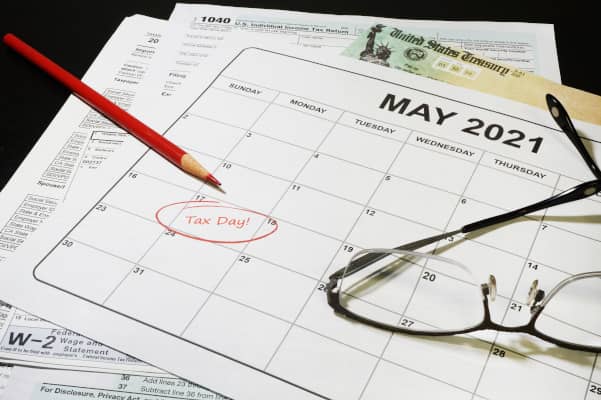
If you need more time to file your taxes this year, you might be pleased to learn that the Internal Revenue Service (IRS) as well as the states of Colorado and California have extended the deadline for filing and paying your 2020 income taxes.
The new date? May 17 for federal taxpayers and those in CO and CA. That means filers won’t be subject to penalties or interest for filing or paying by the time the new state and federal extensions end.
It’s also important to note that, due to disaster declarations, the state deadline to file and pay is June 15 for those in Texas, Oklahoma, and Louisiana.
And if you’re a taxpayer in a state I didn’t mention, you can check with your state here.
Those who haven’t filed yet don’t have as much extra time as last year, but the extra 32 days may help those most in need. Here, I’ll answer some questions you might be asking about what’s changed — and what’s staying the same — for 2020 tax filing.
What else has changed?
A bit of respite for those who temporarily or permanently lost their jobs, $10,200 in unemployment income is exempt from taxation on 2020 tax returns. While it doesn’t apply to all who received unemployment, this provision of the American Rescue Plan Act of 2021 does affect taxpayers who made less than $150,000 last year.
What’s staying the same?
You may have heard that the IRA contribution deadline has moved with the federal extension — but this might not be true. According to the IRS, the IRA contribution deadline is “Your tax return filing deadline (not including extensions). For example, you can make 2020 IRA contributions until April 15, 2021.”
The IRS hasn’t provided any specific direction yet as to whether the IRA contribution deadline will be extended to match the new national tax return deadline. As of its latest news release on IRAs, published March 11, the IRS provides the April 15 deadline. While this may change, you might want to play it safe and make your 2020 IRA or Roth IRA contribution by April 15 if you haven’t already.
Like IRAs, the IRS hasn’t made any mention of extending the 2020 health savings account (HSA) contribution deadline beyond April 15. So it might be a good idea to take care of your contribution early, too, if you had an eligible high-deductible health plan (HDHP) in 2020.
In another similarity to previous years, the first 2021 quarterly estimated tax payment is still due April 15. There’s no change here, and future 2021 estimated payment deadlines remain July 15 and October 15, 2021, and January 15, 2022.
Lastly, if you file for a federal extension, your extended filing deadline remains October 15 — which means still need to pay federal taxes by May 17.
What if you’ve already filed your taxes?
If none of the above changes apply to you and you’ve already filed, congratulations — you’re ahead of the game!
If changes do apply and you’ve already filed, stay tuned to IRS news. They’ll be providing guidance on what to do soon, so it may not be a good idea to file that amended return just yet.
Should you wait to prepare and/or file your taxes?
There’s no need to wait.
Even with the extension, it’s still a good idea to get your taxes taken care of before the extension ends. And that’s not just because tax preparers (like yours truly) tend to get busier as the deadline — extended or not — draws nearer. It’s also because penalties and interest apply for those not paying on time. So, while it’s good to know that you have extra time to file state and federal taxes as well as more time to pay both if you need it, waiting isn’t likely to offer any special benefits and could actually harm your financial situation.
In fact, I’ve seen a few client couples who typically file their state and federal taxes as married filing jointly who were able to find benefits in this unique tax year if they file as married filing separately. That means filing two separate tax returns, which can tax extra time, so it’s still a good idea to get started sooner rather than later.
Plus, with the IRS still processing 2019 tax returns (yes, 2019!) this extension gives them and taxpayers like you and me some reprieve during the pandemic. And with that backlog, electronic filing is likely to be the fastest way to submit your federal payment or receive your refund.
While there’s no time like the present to begin your 2020 tax prep, remember that there’s also no additional fee for your individual income tax preparation. It’s included in your comprehensive services package!
So — even if it’s midnight and you’re in your pajamas — if you haven’t begun your tax-prep process yet, you can get started today at focotax.com.
